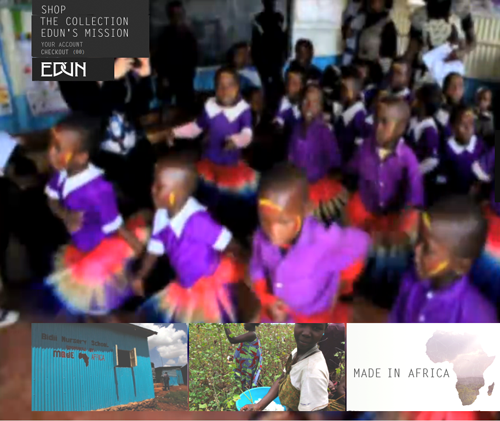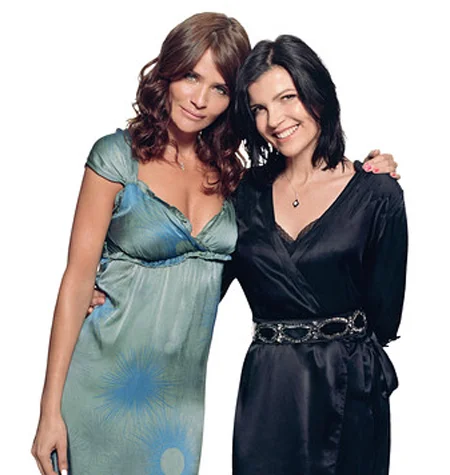Sobered Edun Brand Ready for Reality-Checked Bounce Back
/One of a line of t-shirts created to coincide with the World Cup.The Wall Street Journal has an excellent read about Edun, the clothing collection founded by Ali Hewson and Bono, with the vision of revitalizing apparel manufacturing in sub-Saharan Africa. The story does a great job of separating fact from fiction — not only about the Edun project — but about the challenges of manufacturing clothes in Africa.
When the new Edun collection premiers tomorrow, during New York Fashion Week, designer Sharon Wauchob, who trained at Central Saint Martins College of Art & Design in London and later worked for Louis Vuitton before starting her own collection based in Paris, will be showing product primarily produced in China.
Reality is that the Edun line has experienced a rough ride in retail, known for its poor fashion and a series of production and quality problems.
Ms. Hewson recalls seeing an embroidered jacket hanging at Saks with the wrist the same width as the sleeve instead of being tapered as intended. The company’s longtime communications director, Bridget Russo, says she once hosted a party in the dark, at the chic cabaret venue The Box, to draw attention away from the clothes. via WSJ
The manufacturing and financial problems around Edun were so great that Hewson says they considered pulling the plug on the project. Their friend Jeffrey Sachs, the well-known Columbia project also working with Madonna in Africa, urged them to stick it out.
Success meant selling 49 percent of the company to LVMH last year and bringing in a roster of industry professionals to run the company. The brand shows new promise with design and renewed support from retailers like Barneys and Saks Fifth Avenue. BUT, the fashion and quality must be right on. All parties agree with this disclaimer.
For this reason, about 90 percent of Edun’s manufacturing is in China, not Africa. “Shipments from Africa arrived late, and retailers complained about the clothes’ design and fit, leading to poor sales.”
Today’s Edun products carry details made in Africa — such as beading — with hopes that new manufacturing projects can be executed in the region. Edun seems now focused on special projects like this one in tee shirts, to retain a spotlight on development in Africa:
Edun partnered with Made Africa to produce a series of tees that bring to life hand drawings made by children from the Bidii School in Kibera, Kenya. Kibera is home to 1.5 million people-more than one quarter of Nairobi’s population-making it one of the largest slums in Africa. The majority of the population lives without clean water or sanitation. One hundred percent of the proceeds from the sale of these tees will go back to fund basic needs, such as lunch, supplies, healthcare, and development projects at the Bidii School.
The Edun story serves as a superb reality check in the discussions between business people, NGOs and African entrepreneurs who accuse practical realists of being petty and racist in their attitudes about doing business in Africa. As the Edun story confirms, the reality check is far more complex than the rhetoric.
The Edun website continues to say that the company’s mission is to “trade with Africa and celebrate the posssibilities and the people of the continent.”
Anne confirms a similar anecdote about manufacturing in Haiti, a project for NFL-team branded sportswear. The factory workers decided that they liked better mixing the colors on products, rather than putting Miami Dolphin logos on Miami Dolphin jackets.
Tens of thousands of products arrived in the US with Dolphin logos on Dallas Cowboy jackets and a wide variety of similar “more visually interesting” color combos. The lesson was a sobering one in the unanticipated challenges of manufacturing in certain parts of the world.
More Reading:














